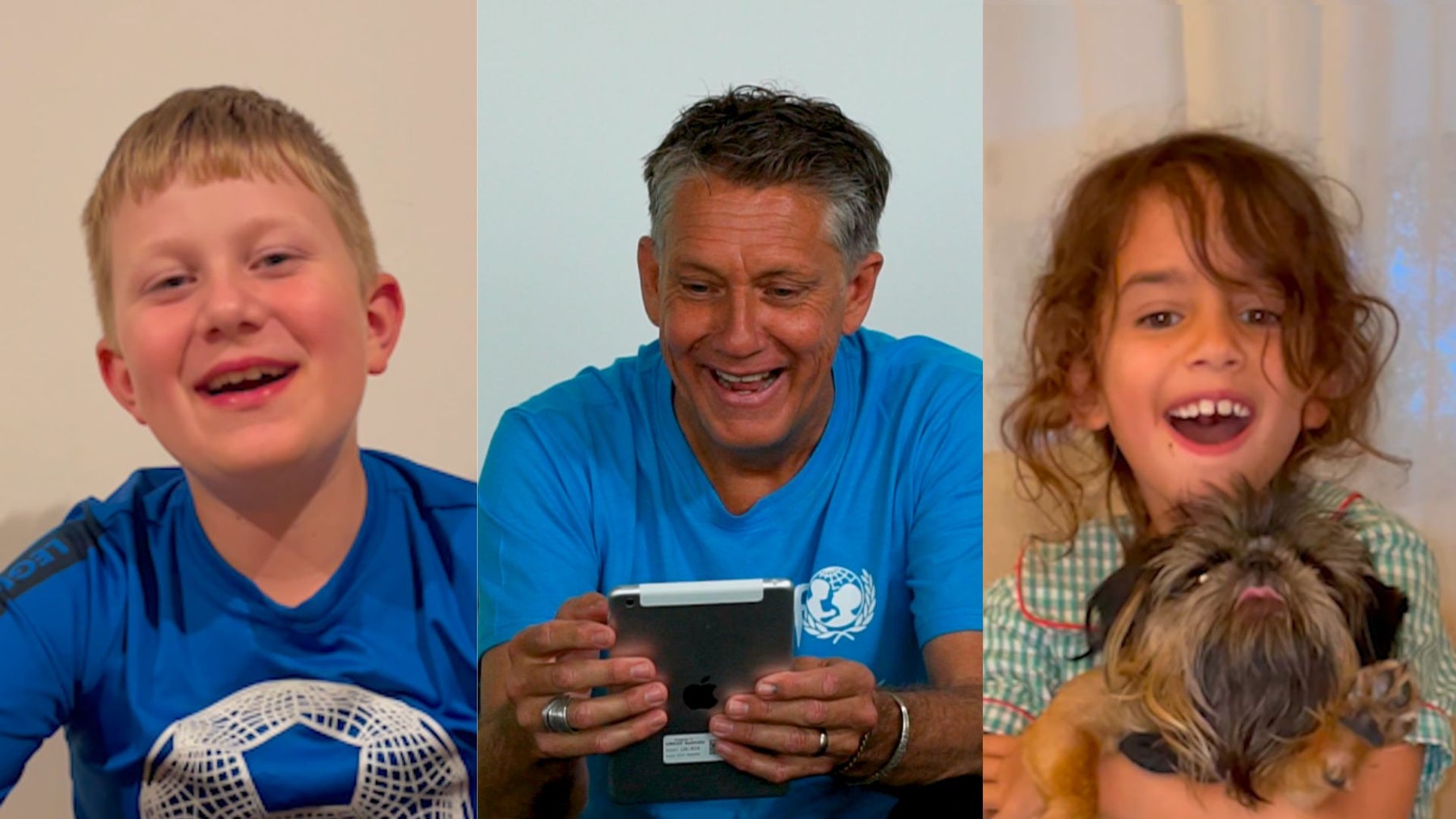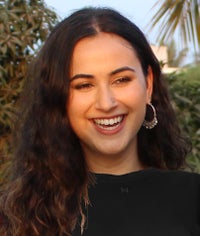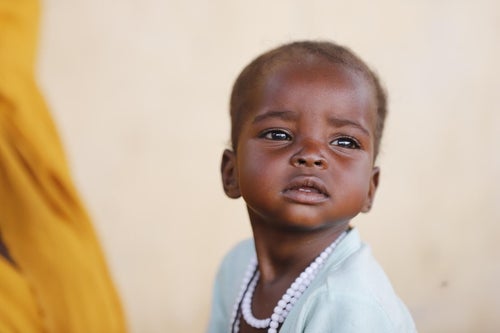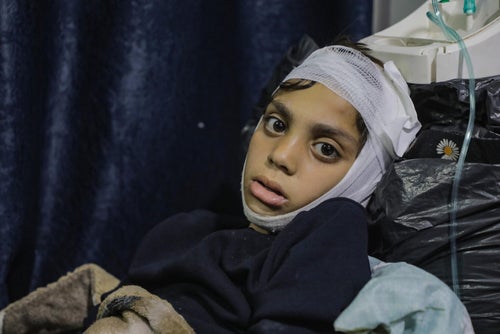Recently, UNICEF’s global spokesperson James Elder travelled back home to Australia to chat to kids from Brisbane, Canberra and Sydney about his experiences working to support and protect children in some of the most dangerous places in the world.
Aussie kids ask James the big questions!
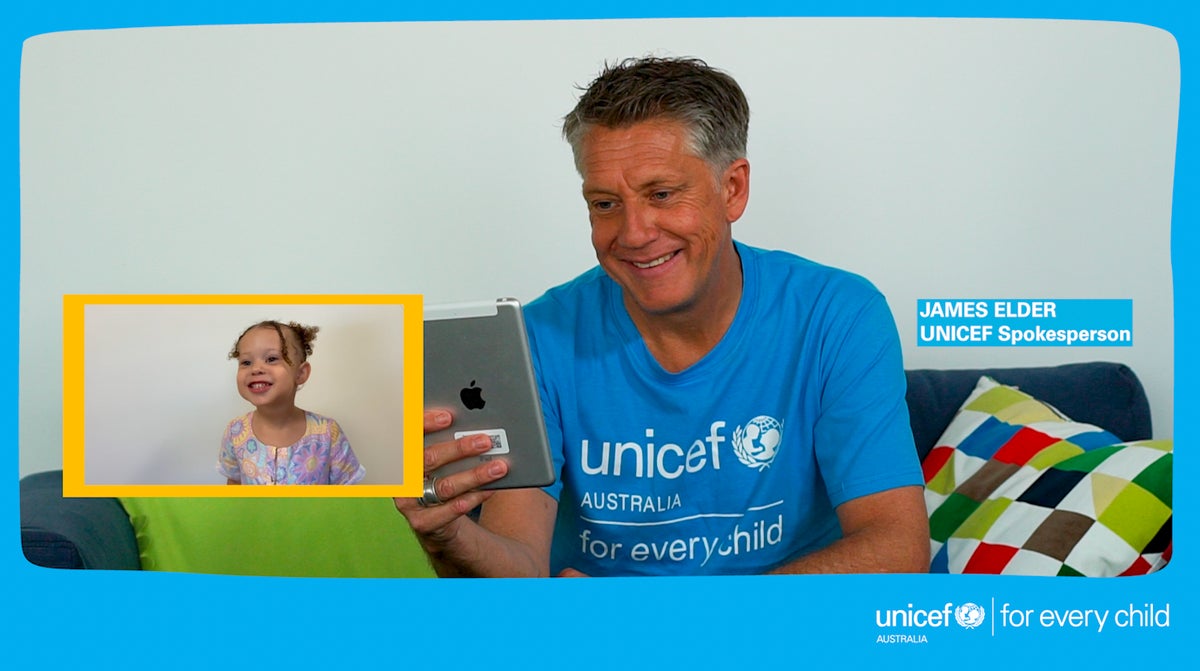
Kids Ask: Emergencies
"Hi James! Nice to meet you. My question is, how do you help kids around the world?"

James Elder: Wow, Nikita, what a good question. At UNICEF, we have people who work in health to look after kids with vaccines. We have nutritionists to make sure children are eating the right thing and we have people who make sure kids get safe and clean water. My colleagues, they do the amazingly hard stuff. My job is to try and tell that story to parents like yours around the world, so that together we can help more kids!
"Hi James, I’m Zara. What is an emergency?"

James Elder: Hi Zara! An emergency is something that happens suddenly, it's usually quite bad. It could be like an earthquake, flood, famine or even worse, a war. And these are the times when UNICEF comes in, because when emergencies happen, usually they're worse for kids than for anyone else.
"Hi James! How does UNICEF help if there is an earthquake or flood?"

James Elder: So, Elizabeth, if there's an earthquake or flood, it happens very suddenly, usually when people are not prepared. They're super dangerous and that's why we, whether we are the grown-ups or whether were clever 9-year-olds like you, we've got to make sure that mums, dads, and companies start doing the right thing by the climate, so we don't get too many floods.
Right now, UNICEF helps kids and families before, during and after things like floods or earthquakes. We provide things like safe drinking water, nutrition, medicine, emergency shelter, education, rebuild homes and more.
"Hi James, I like to play with my friends, see family members and play netball. What are kids in other countries favourite things to do?"

James Elder: Kids are kids all around the world. They like to play, they like to hang out, they like going to school, and listen to music. I think as much as I keep saying it – UNICEF tries to create an environment for children, so they can be children.
For example, kids in Syria and Afghanistan, they like to do very much the same things you do, which is play and be with friends. So a big part of what UNICEF tries to do is make life in that country safe and peaceful with enough food and water so they can do just that.
In Syria there is a little ten-year-old girl, Fatima. After the recent earthquake disaster, she was making dolls for her friends. She loves sewing and knitting, and doing puppet shows, so that was her big passion. Now she was doing it more often because after the earthquake, so many kids have lost everything - blankets, beds, and dolls.
I think that's cool when kids understand random acts of kindness. I think you've got a few random acts of kindness in you Charlotte!
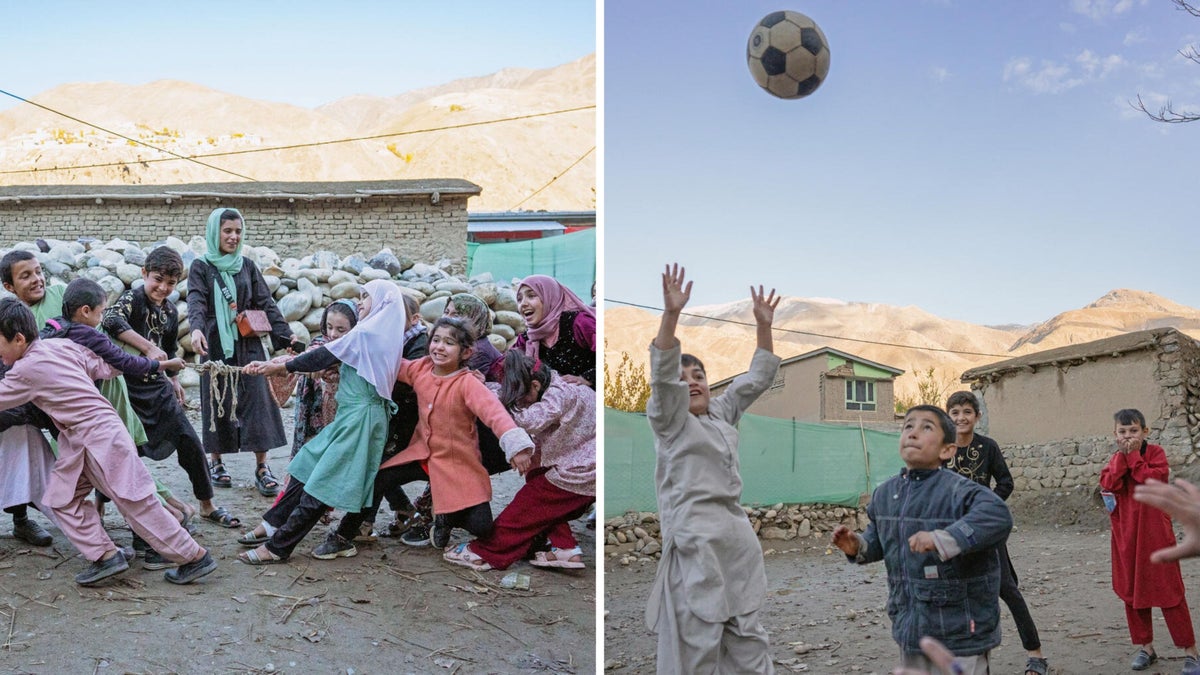
"My question today is - what happens after disaster? How does UNICEF help children to have a normal life again?"

James Elder: Wow Kara! These are great questions. UNICEF works in 190 countries around the world. There's no children's charity bigger than UNICEF. This means we are in a country before any disaster, very much during it and after.
During an emergency, it's about saving lives, after an emergency, it's about building back. Building back a health system, building back a school. If we're talking about climate emergencies, how do we build back the school so it's stronger, more resilient? And we stay, so we can be there to support children through their normal lives, so they have the best chance of building successful futures.
"Hi James. My question is, how does UNICEF get resources to the field so quickly after a disaster happens?"

James Elder: Hi mate. This is a great question because there is no magic pile of money for UNICEF, even though I wish there was! But when you are as big of an organisation as UNICEF, you get the bang for the buck and we can buy things like schoolbooks, vaccines, tents at a good price.
We also have the world’s largest humanitarian warehouse in Copenhagen, Denmark as well as supply hubs all around the world from Nairobi to here in Australia. When there's an emergency, UNICEF staff are able to ship supplies within 48 hours, because we know that when an emergency hits those first two or three days are critical.
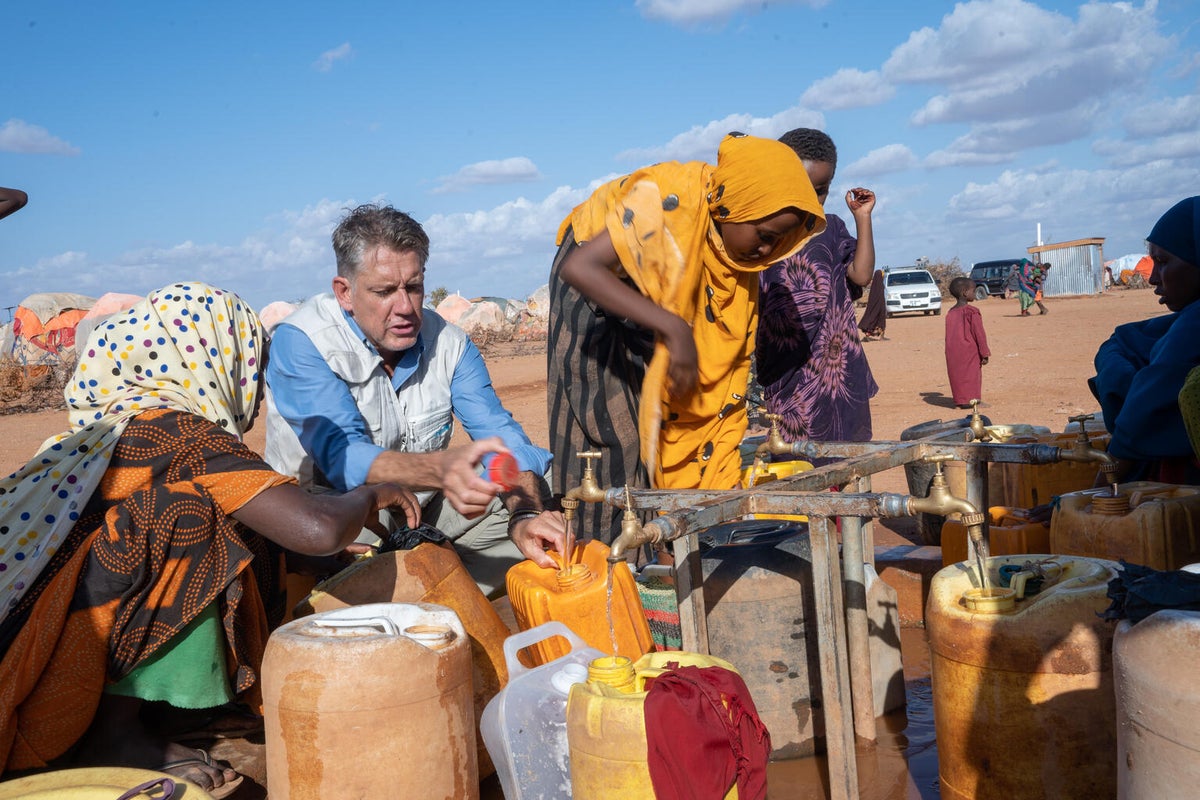
"Hi James! My question today is, does UNICEF work alone? Or do you have help?"

James Elder: G'day Lila. We absolutely do, we have help from so many people. We have help from smaller organisations on the ground that live in those communities - pick any country and they're there and we work with them as they are the experts in their own communities. We also work with governments, to make sure we can build stronger systems, like health or education, for children to thrive.
"Hi James, how can other children like me help children who are living in emergencies?"

James Elder: I think first and foremost, by even thinking this way, you're on that right path. Whether it’s a cyclone in the Pacific, or an earthquake in Syria and Türkiye. Whatever it is, anything that you're doing to improve the life of others is a game changer. But here are some things you could do, right now:
- Read the news, find those sources where you get a sense of what's happening around the world.
- Be engaged. There is not a lot of good news out there, but the more you read, the more you'll find heroic stories. And I think once you get a sense of what's happening out there, and how fortunate we are here, then you'll find the right path.
- Fundraise for UNICEF, maybe in your local community, because every dollar makes a big difference in the life of a child.
- Advocate for the rights of children and young people. You might decide you want to go and talk to someone in your local community about issues you think are important. Or even just talking to your friends about kids in need, then you are expanding everyone's hearts and minds!
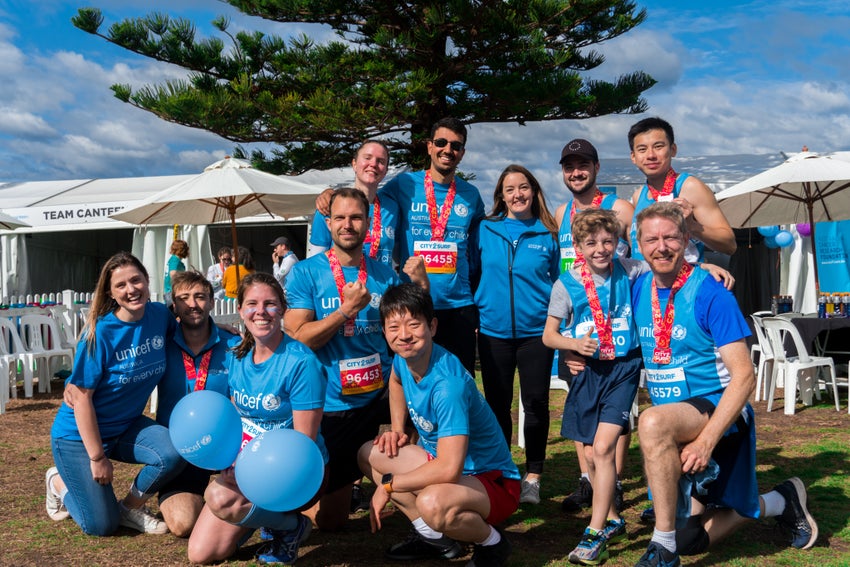
FUNDRAISE FOR UNICEF AUSTRALIA
When UNICEF teams are delivering on the ground, for many children, it's a sign of hope, a sign that they have not been forgotten. This is only possible because of our supporters.
If you would like to make a big difference for children living in crisis, share their stories (just like James Elder!) by starting your own community fundraiser right here at home.
Related articles
Stay up-to-date on UNICEF's work in Australia and around the world



